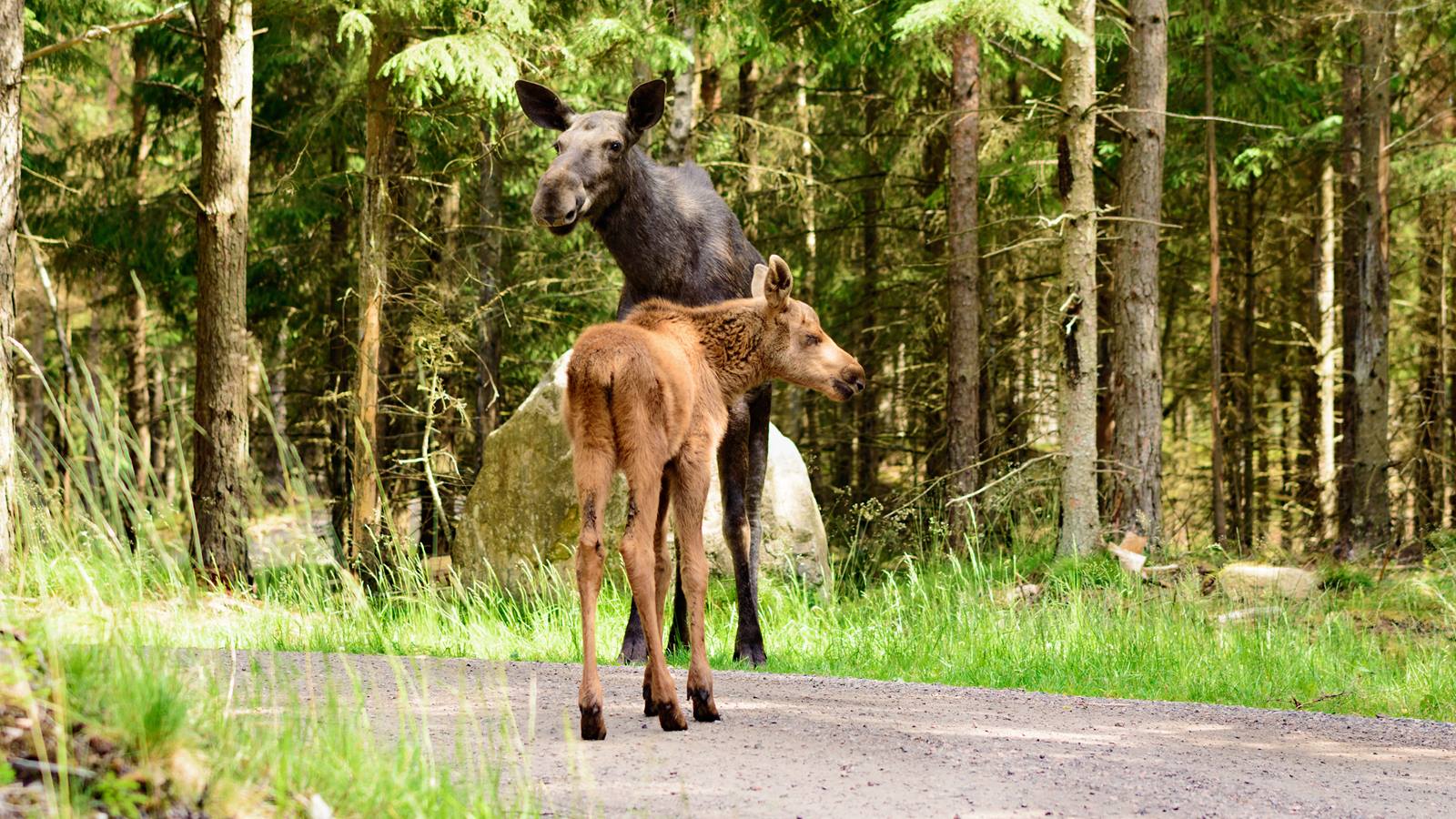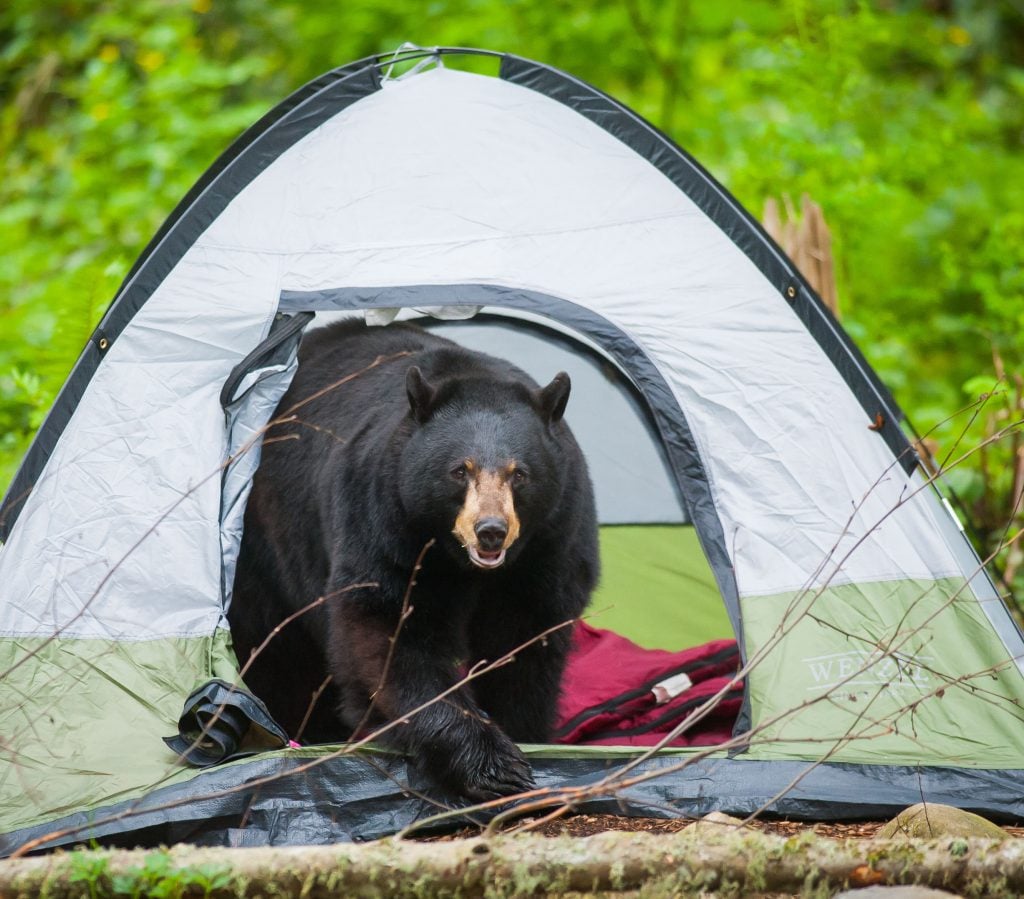To stay safe from wild animals while camping, store food in airtight containers and keep a safe distance from them. Camping in established campgrounds with designated cooking areas and hiking with a group can also minimize encounters with dangerous wildlife.
Wildlife sightings can be exhilarating and awe-inspiring, but they can also pose a serious threat to campers. It is crucial to understand the behavior of animals in the area you intend to camp, to avoid attracting them with open food containers, and to store all food in airtight containers.
Additionally, ensuring that all trash is disposed of properly and not left out in the open can help prevent unwanted encounters. Being aware of your surroundings, making noise while hiking, and not leaving pets unattended can also reduce the risk of a dangerous wildlife encounter.

Credit: intermountainhealthcare.org
Contents
- 1 Understanding The Threats Posed By Dangerous Wildlife
- 2 Preparing For Your Camping Trip In Wildlife Areas
- 3 Setting Up Camp To Minimize Wildlife Encounters
- 4 Navigating Wildlife Encounters During Your Camping Trip
- 5 Leaving No Trace And Contributing To Wildlife Conservation
- 6 Frequently Asked Questions Of How To Stay Safe From Wild Animals While Camping
- 7 Conclusion
Understanding The Threats Posed By Dangerous Wildlife
Safely camping in the wild means understanding the potential threats posed by dangerous wildlife. It’s important to learn about the different species of wildlife that could be dangerous, including bears, cougars, and snakes. Knowing about the behavior and habitats of each creature can help prevent dangerous encounters.
Look for signs of wildlife presence before setting up camp, like tracks and droppings. Keep all food and trash stored securely to avoid attracting animals. Make noise while you hike to alert wildlife of your presence and avoid surprising them.
Remember that human behavior can also be a threat to animals. So, always follow leave no trace principles, and respect the natural habitats of these creatures. By taking the necessary precautions, you can safely enjoy nature while avoiding potential danger.
Preparing For Your Camping Trip In Wildlife Areas
When it comes to camping in wildlife areas, it’s important to take precautions to stay safe. Start by researching the location and the current wildlife activity to ensure you’re prepared. Stock up on essential camping gear and supplies, such as bear spray and food storage containers.
Additionally, creating a wildlife safety plan with your camping companions can help prevent any dangerous encounters. Consider the placement of your tent, keeping it away from areas where wildlife may be active. Always properly store your food and trash. Remember, avoiding dangerous wildlife is key to a successful camping trip in the wild.
Setting Up Camp To Minimize Wildlife Encounters
When it comes to camping in the wild, avoiding wildlife is critical for safety. The best way to do so is by choosing a campsite away from animal habitats. Make sure to properly dispose of food and garbage to avoid attracting potential predators.
Building a fire pit around the campsite can also help deter animals from coming too close. By following these simple guidelines, you can enjoy a safe and enjoyable camping experience in the great outdoors.
If you’re planning on camping in the great outdoors, it’s important to consider the possibility of encountering dangerous wildlife. By understanding how to react during different wildlife encounters, you can increase your chances of staying safe. It’s also essential to bring appropriate wildlife deterrents, such as bear spray, and to know how to use them.
Remember to respect wildlife by keeping a safe distance and avoiding actions that might provoke an attack. If you do find yourself in a dangerous situation, don’t hesitate to retreat to a safe distance. By following these guidelines, you can enjoy a memorable camping trip while keeping yourself and the wildlife around you safe.
Leaving No Trace And Contributing To Wildlife Conservation
To safely camp in the wild, it’s important to leave no trace and contribute to wildlife conservation. Properly disposing all waste and litter is vital, as it can attract dangerous animals and pollute the environment. Leaving the campsite as it was found allows for preservation of the natural habitat.
Understanding how to coexist with wildlife and contributing to conservation efforts can create a symbiotic relationship. It’s important to respect animals and their habitats, and to educate others on how to do so. This not only ensures human safety, but also the protection and preservation of wildlife for generations to come.
Frequently Asked Questions Of How To Stay Safe From Wild Animals While Camping
What Precautions Should Campers Take To Stay Safe From Wild Animals?
To stay safe from wild animals while camping, always store food securely, pack bear spray, make loud noises and avoid cooking in your tent. Stay alert and keep an eye out for any signs of animal activity. Keep a safe distance and never approach them.
What Do I Do If I Encounter A Bear Or A Mountain Lion In The Wild?
If you encounter a bear, make yourself appear larger and make loud noises. Back away slowly and avoid eye contact. If you encounter a mountain lion, make yourself appear bigger and make loud noises while slowly facing the predator. Do not run or turn your back.
Can I Keep Food In My Tent While Camping?
Storing food inside your tent is a bad idea and it can attract wild animals. Always store food in bear-safe containers or in a separate bear cache. This will help to reduce the risk of attracting wild animals to your campsite.
How Can I Prevent Attracting Animals To My Campsite?
To prevent attracting animals, store all food and garbage away from your sleeping area. Avoid cooking near your sleeping area and clean up your dishes after meals. Also, avoid bringing any food items with strong smells, such as perfumes, chapstick, or candy, into your tent.
What Are The Signs Of Animal Activity?
Signs of animal activity include tracks, feces, and signs of digging or scratching on the ground. Stay alert and watch for any unusual activity. If you see any signs of wild animals around your camp, take the necessary precautions to keep them at a safe distance.
Conclusion
Going on a camping trip is a thrilling adventure, but it can quickly become a nightmare if you aren’t prepared for encounters with wild animals. The most crucial aspect of staying safe in the wild is to educate yourself on the local wildlife and develop an awareness of your surroundings.
Always keep your food stored correctly and away from your sleeping area to avoid attracting unwanted guests. Don’t forget to keep yourself and your pets vaccinated against rabies and other harmful diseases. Camping with a group is always safer than going alone, but if a wild animal does approach you, stay calm and slowly back away.
Remember to respect the wildlife and their habitats, and you’ll be on your way to a fun and safe trip in the great outdoors. By following these guidelines and taking necessary precautions, you can experience the wonder of nature without putting yourself or others in danger.

